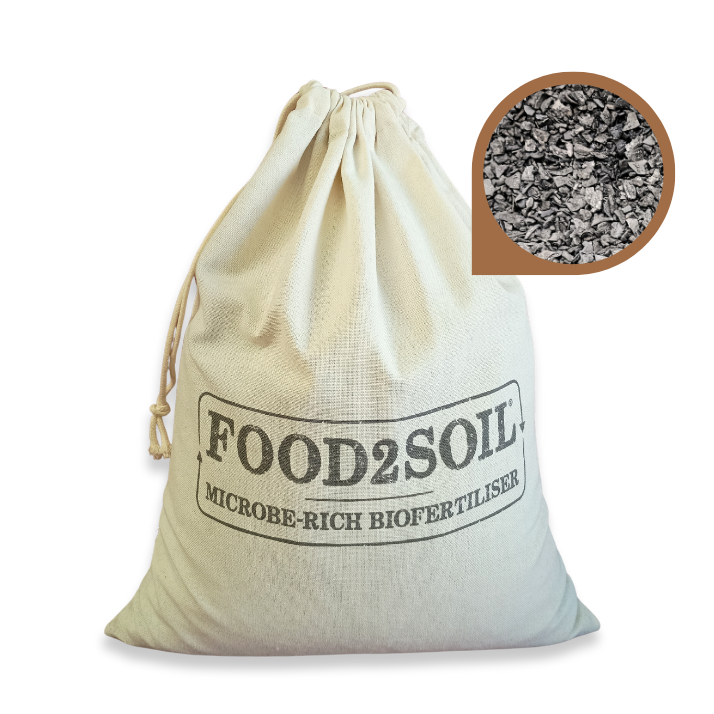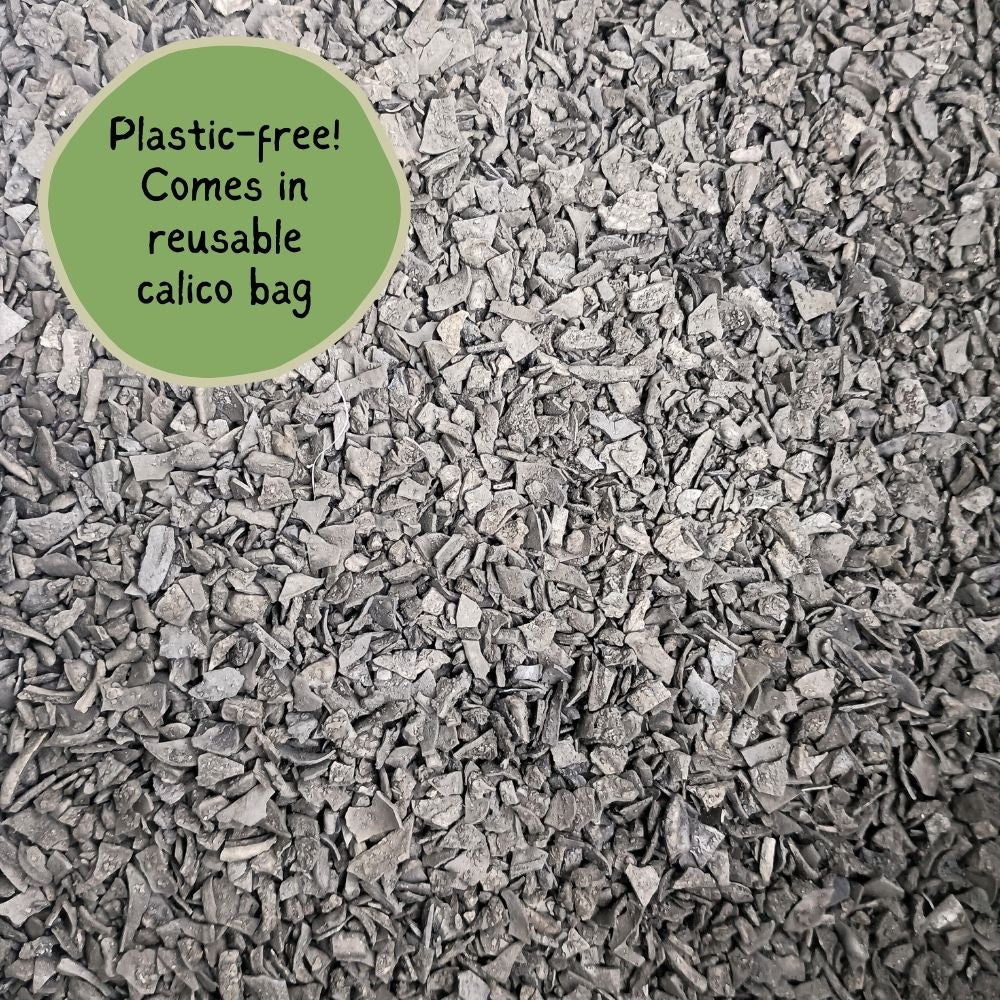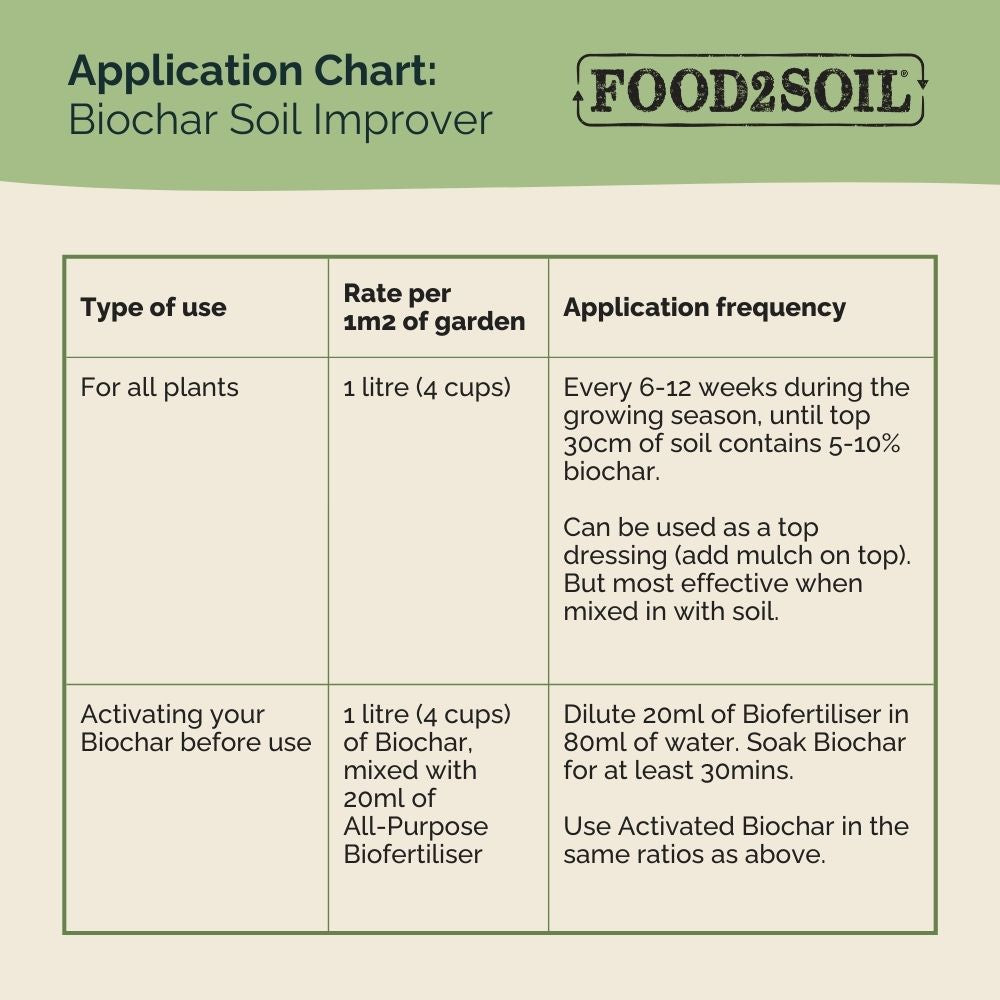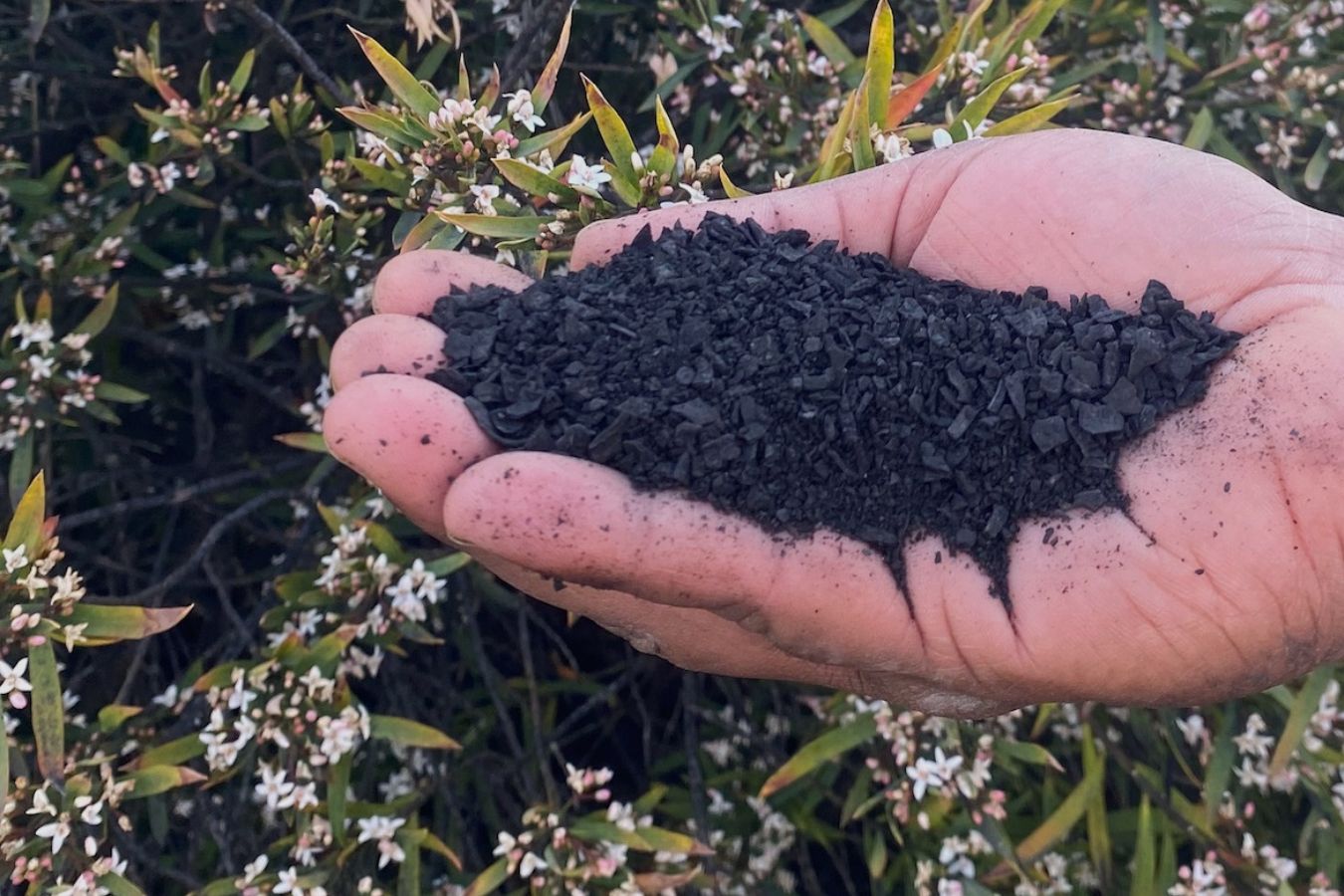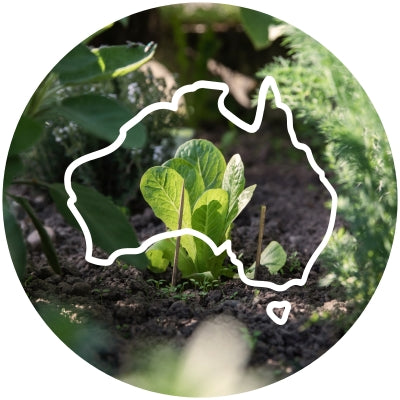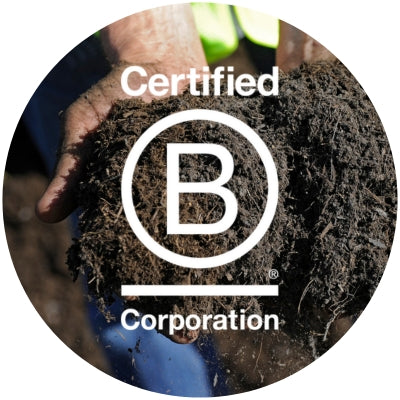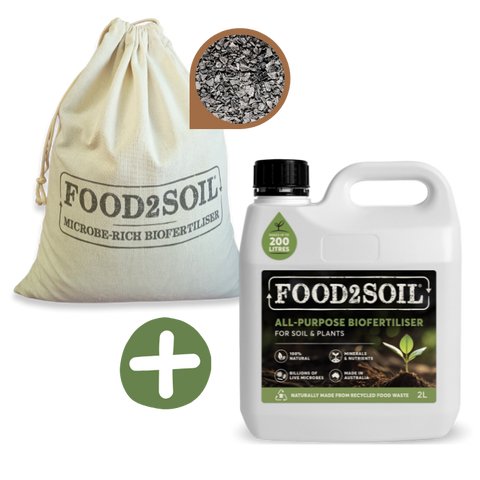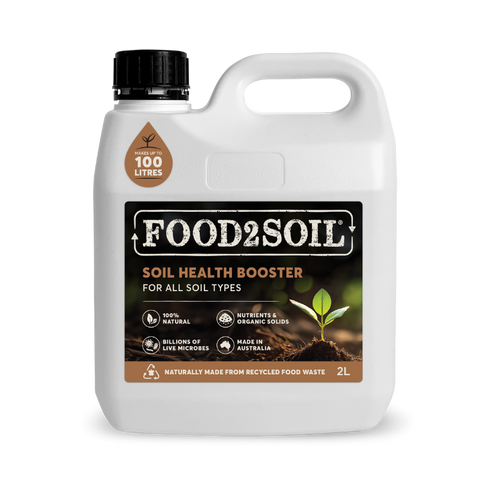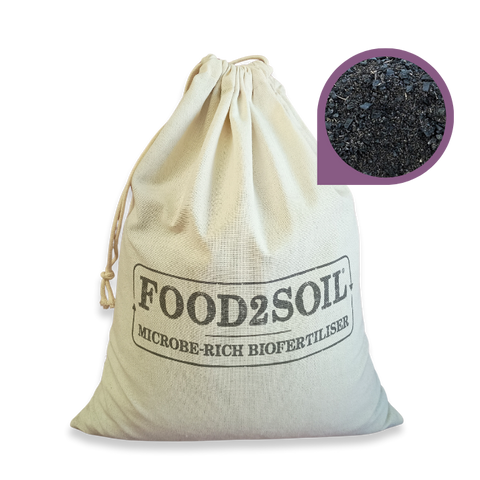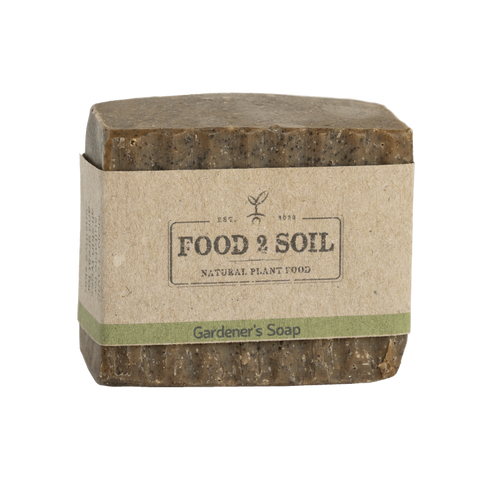Biochar Soil Improver
Transform your soil into a healthy, living ecosystem with this premium-grade, carbon-rich biochar. Specially designed to boost soil fertility, this eco-friendly soil amendment improves plant growth, resilience, and water efficiency.
What’s Inside
- Made from sustainably sourced Australian nut shells — 100% recycled organic material
- Grade: 0–9 mm, Size: 3L or 7L
- Plastic-free packaging in a reusable calico bag
Why It Works
- Reduces watering needs by holding moisture in the soil
- Improves soil structure, aeration, and root growth
- Enhances nutrient retention, pH balance, and soil fertility
- Supports microbial activity and boosts organic matter
- Helps reduce carbon in the atmosphere through natural carbon sequestration
- Strengthens plant resilience against disease, heat, and drought
How to Use
- Activation: Always activate your biochar before use. Mix with Food2Soil All-Purpose Biofertiliser + Seaweed to inoculate it with billions of beneficial microbes.
- Application: Blend into soil in veggie patches, garden beds, pots, lawns, or around Australian natives.
- Frequency: Suitable for year-round use on all soil types, particularly sandy, compacted, or heavy clay soils.
- For best results: Use with our Biochar Activation Kit.
Sustainability
Food2Soil’s Biochar Soil Improver is made from waste nut shells, helping reduce landfill while sequestering carbon in the soil. Choosing biochar means healthier soil, thriving plants, and a smaller carbon footprint.
Bundle and Value
Available in 3L and 7L sizes. Pair with our Biofertiliser and Soil Health collections, or explore Bundles for combined savings. Browse All Products for more sustainable gardening solutions.
Frequently Asked Questions
Q: Do I need to activate biochar before using it?
A: Yes. Always activate biochar with a microbial inoculant like our All-Purpose Biofertiliser + Seaweed or use the Biochar Activation Kit.
Q: How does biochar improve soil water retention?
A: Its porous structure holds water like a sponge, reducing watering needs and helping plants survive drought.
Q: What soil types is this best for?
A: Biochar works in all soil types but is especially beneficial in sandy, compacted, or clay soils where it improves structure and fertility.
Q: How is this different from compost?
A: Compost adds nutrients and organic matter, while biochar provides stable carbon, improves nutrient retention, and creates a long-term habitat for microbes. Used together, they are very effective.
Q: How long does biochar last in the soil?
A: Biochar is highly stable and can remain in the soil for decades, continually improving soil health.
Q: Is it safe for pets, wildlife, and pollinators?
A: Yes. Biochar is natural, safe, and chemical-free when used as directed.
Q: How does biochar help the environment?
A: Biochar sequesters carbon, reducing CO₂ in the atmosphere while recycling agricultural by-products into valuable soil amendments.

